We all need help at times, and support from family or friends can provide significant relief. Sometimes though, we’re the one who notices someone we care about is struggling but we don’t know how to start the conversation.
Or perhaps we’re in denial that what we’re observing is serious enough that we need to speak up.
Such was the case for me, when my mother began complaining about physical ailments and lost a significant amount of weight several years ago. She also stopped showing any interest in my family, including her grandchildren, who she had always had a close relationship with.
By then, I’d been writing about mental health for a website – Workplace Strategies for Mental Health – for a few years. It was shocking that I didn’t recognize what was happening to my own mother right under my nose was in fact deep depression.
Like many people suffering with depression, she didn’t know what was happening, so she didn’t know what kind of help to ask for. And like many women of her generation, she also never put her own needs first.

So off she went with my dad to his favourite golf getaway – far away from any of her support network – where she would spend most of her days alone. Her symptoms worsened dramatically but she never let any of us know. That’s until my brother went to visit. He quickly alerted me to what he saw, saying she was unrecognizable.
My mom and dad returned from their holiday early, but she still didn’t ask for help.
My brother had done his job alerting me to the situation. Now, it was up to me to take the next step with some of the knowledge I had gained through my work.
Sure, I could write about this stuff but doing an intervention with a family member – our matriarch no less – was something entirely different.
I sifted through the website I wrote for and found the free resource Someone you care about appears to be struggling with their mental health, which provided questions I could use to get the conversation started:
- First and foremost the resource advises that you come to the conversation with the right mindset. I needed to put aside the hurt and loss I was feeling about my mother’s lack of interest in my life or my children.
- It provided some great tips to keep the conversation focused on what I was noticing and how to continue the conversation even if my mom resisted discussing her mental health.
I should provide some back story. My mother’s mental health issues arose shortly after her beloved mother’s death after a long decline where my mother was a primary caregiver, and after many years of supporting my dad’s recovery from alcoholism. It had all simply become too much. When I thought about that, I realized it was more of a surprise that she had held up for so long.
Still, I knew I needed more “evidence” to get my mom to open up about what she’d been feeling – and why she felt she needed to keep it to herself. My mother is a very tough cookie, who would likely tell me to piss off or, shut down completely, if I didn’t take the right approach. This wouldn’t be because she didn’t trust me, but more because she was used to solving the problems of the world on her own.
I decided to do a free online survey I was aware of called “Check up from the neck up”, offered by the Mood Disorders Association of Ontario to help improve awareness about mood disorders (see note below; the survey doesn’t appear to be available online any longer).

I answered the questions as I figured my mom would, based on the symptoms we were seeing. The survey results showed a clear indication of depression. It wasn’t the result I was hoping for.
I was nervous as hell as I headed out to my parents for the weekend to talk to my mom about her mental health. Over morning coffee, I described the changes I had noticed. I then, carefully broached the subject of her spending less time with me and my kids, and this broke the ice.
My mom opened up about her feelings of sadness and not wanting to be with anyone. This was gut wrenching and I told her how brave she had always been and asked her if she would now be open to receiving the help she deserved.
I also asked her if she’d like to do the Check-up survey herself. She initially told me to screw off – my mother’s like that – but then she agreed. The results were almost the same and I could see her mood brighten knowing that there might actually be a reason for what she was feeling – and that something could be done to help her feel better.
I then suggested I accompany her to her next doctor appointment so we could discuss treatment options. She vehemently refused but I drew on some of the information I’d found describing how everything can be more difficult when you’re feeling depressed and how my being there might make things easier. While she glared at me all the way to the doctor’s office, it was soon evident it was a good thing I had joined her.
I was able to help fill in some of the changes my mother’s depression had created around her interactions with family members and describe how she acted and functioned when she was well. In my parent’s small town they rarely have a doctor for any length of time. It was important to me that this new doctor knew who my mother was and how much she needed his help.
The doctor prescribed medication and suggested psychotherapy, which my mother flat out refused, saying that talk therapy would “stress her out”. I tried to change her mind on this to no avail and knew I had pushed enough. This was ultimately her decision, not mine. And as she now says, she has me to talk to! She also talks openly about her depression to all of our family and many of her friends. She has learned she is not alone.
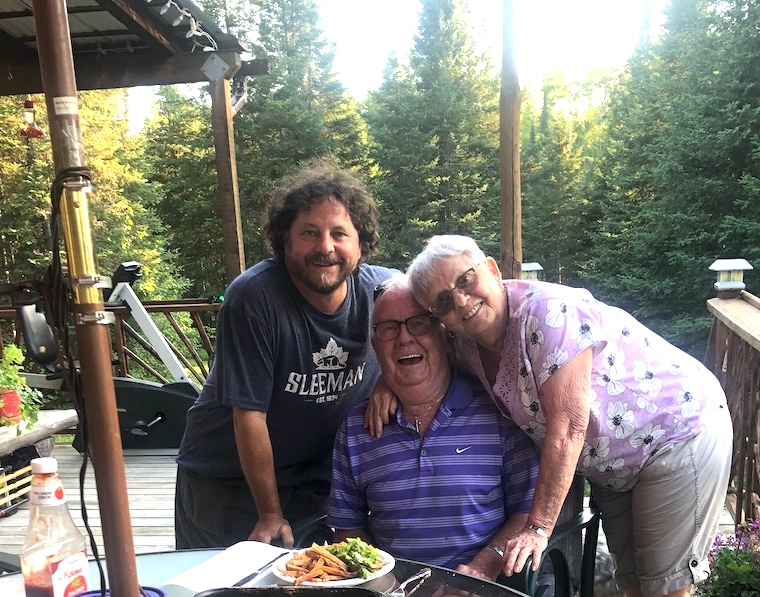
My partner Michael, mom and dad together for a family bbq. 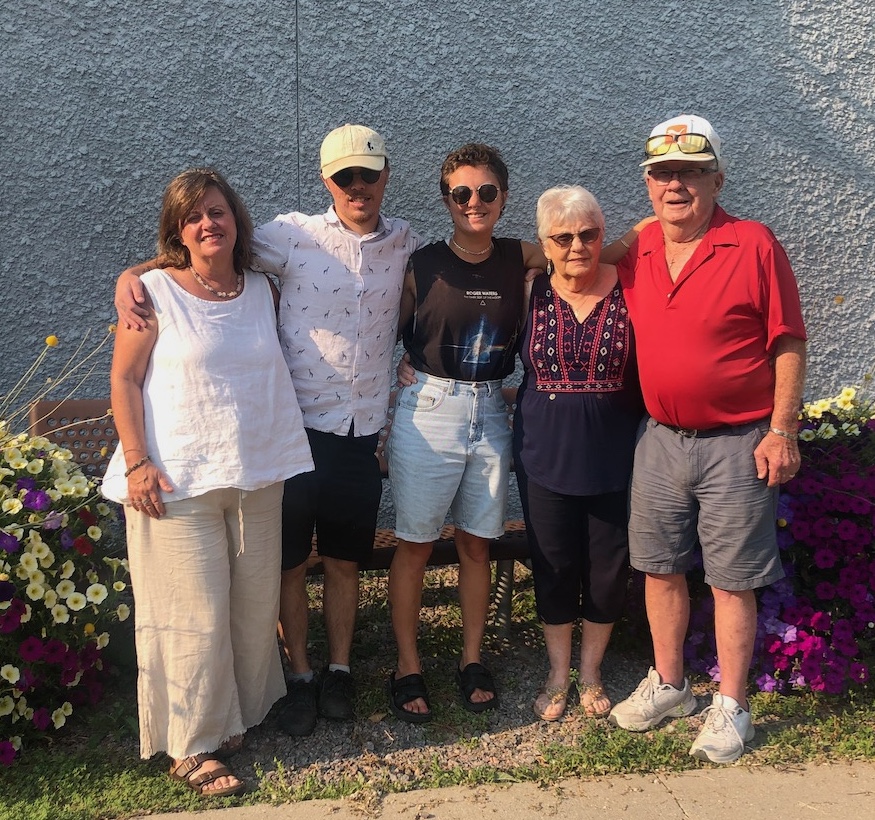
Me and my offspring, Ren and Ev, with happy grandparents. 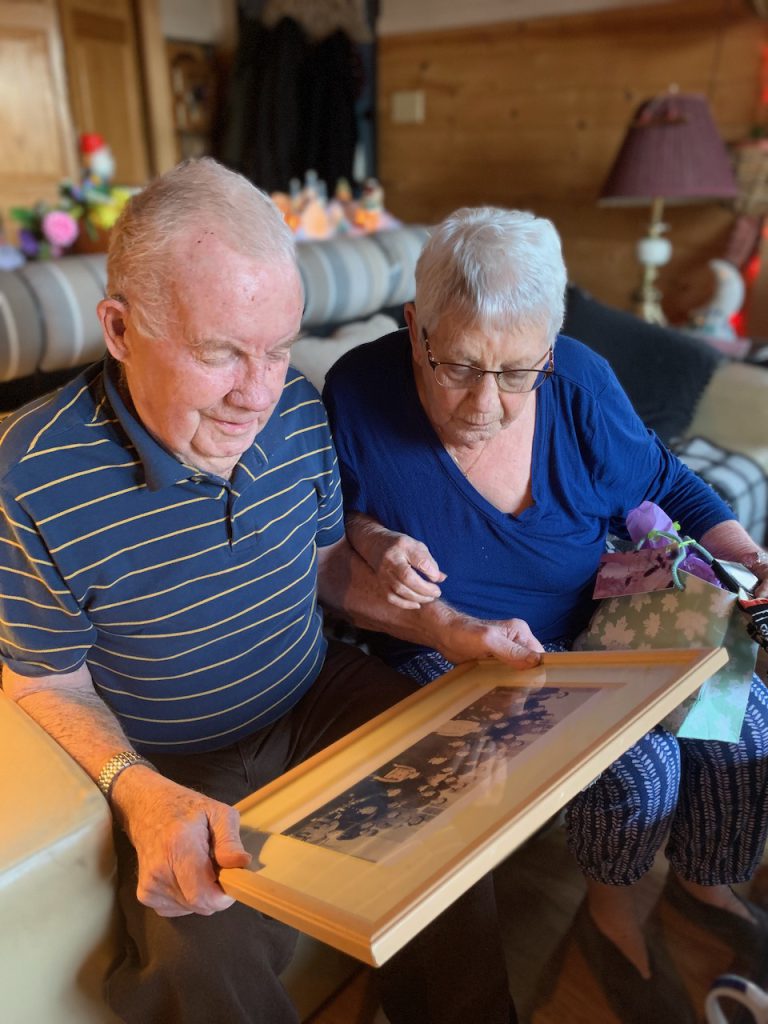
My mother has always looked after everyone else, including my dad. 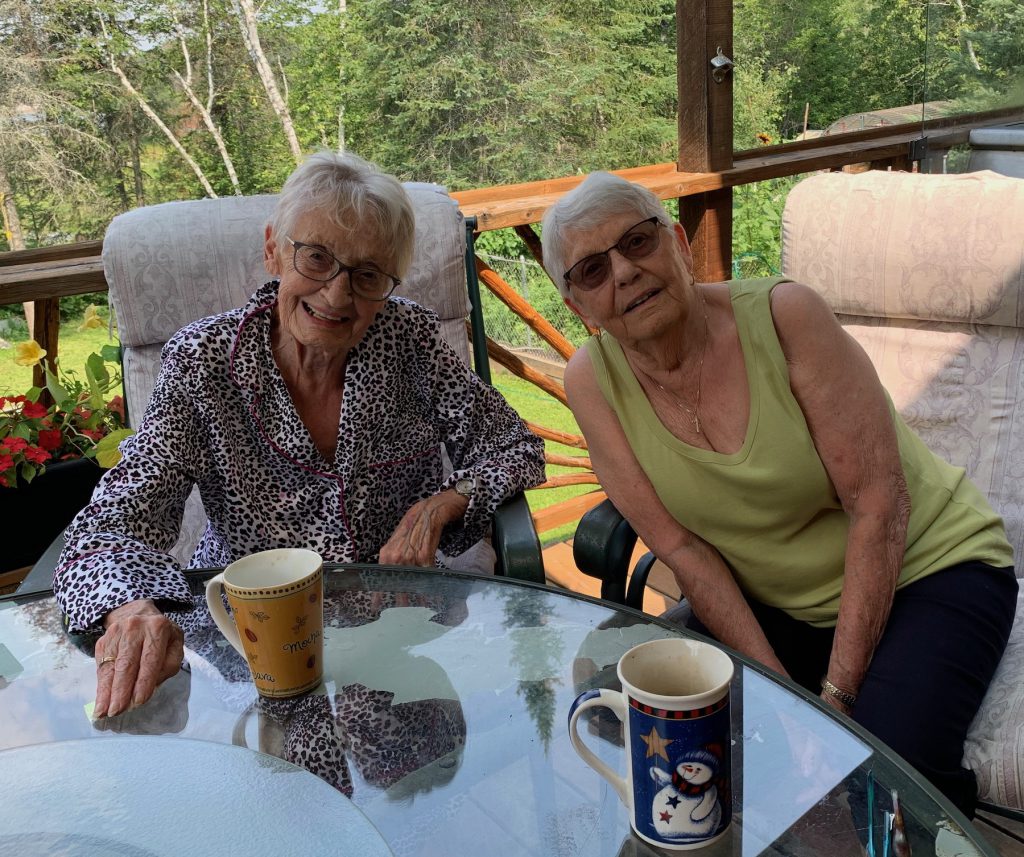
My mother (right) and her little sister Eileen. 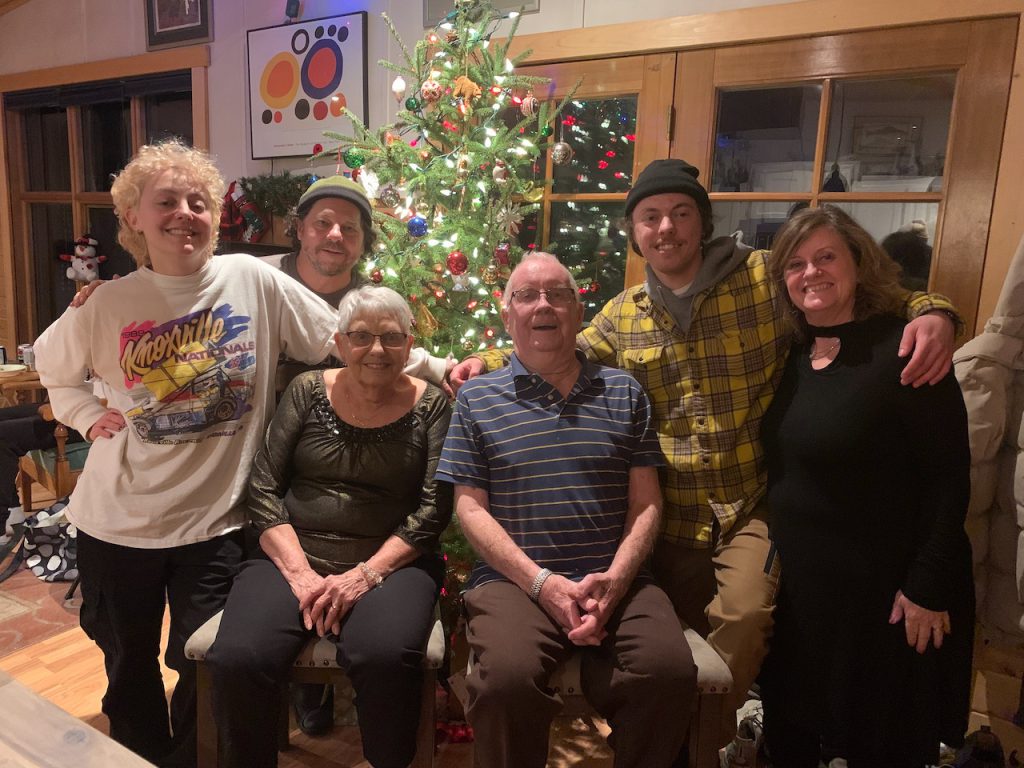
The family all together for Christmas 2023.
Noticing and validating how my mother was feeling helped her feel supported as she began her healing journey. Within a few months, treatment was working, and she was back to being the vivacious, opinionated and loving grandmother, mother, wife, sister and friend she had always been. We are grateful to have he back.

And since these conversations began, I have never been closer to my mom. Helping to break open this door has made it possible for us to talk about anything and everything. I’ve gained her trust, and she is always willing to ask for and receive my help and the help of my dad, my brother, other family members and her community of lifelong friends.
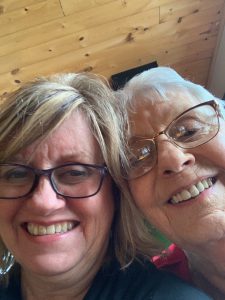
Conversations like these are never easy, but you are always doing the right thing by asking someone about their well-being and supporting them when they are ready to address a challenge they may be facing.
If you’re like me, you might need some help to get started. Hopefully you don’t need your big brother to kick you in the ass!
I often say, I’m a work in progress. But I’m so glad there was help when I needed it to do the right thing.
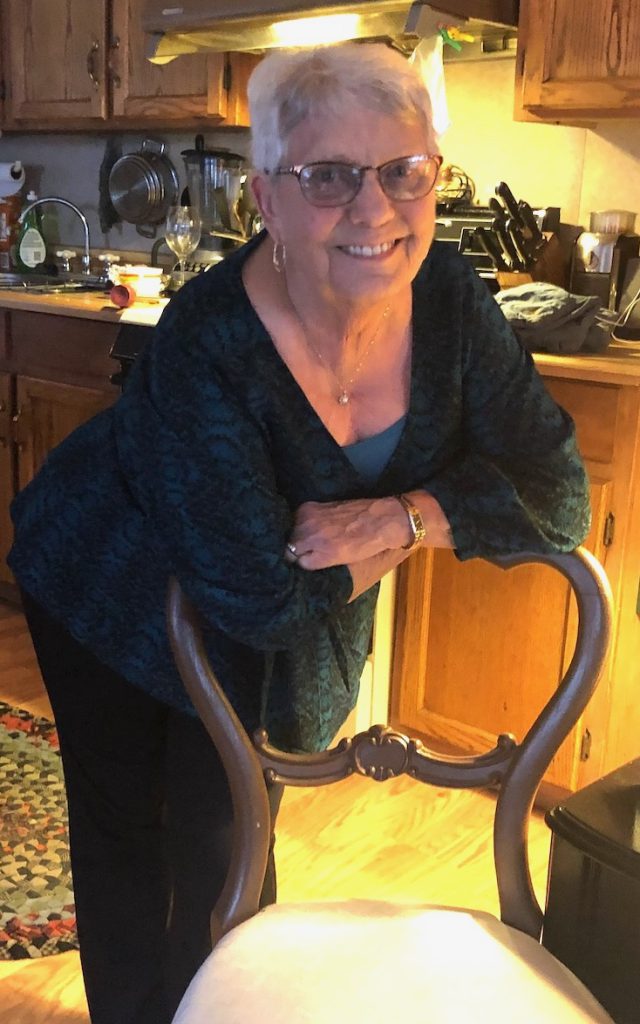
More resources from that website I mentioned…
Supportive conversation library provides questions and strategies to help you have helpful conversations with someone you care about on difficult topics like mental health, stress, addiction, anger, abuse, lying, burnout, dementia, loneliness, stigma and racism.
Getting Help provides tools to help you and those you care about who may be struggling with health issues.
While this website is focused on employees in workplaces, many of these resources can help anyone anytime.
Note that the Check up from the neck up survey I used doesn’t seem to be available any more but some helpful resources are also available at hopeandme.org/our-programs/online-programs/check-up-from-the-neck-up
